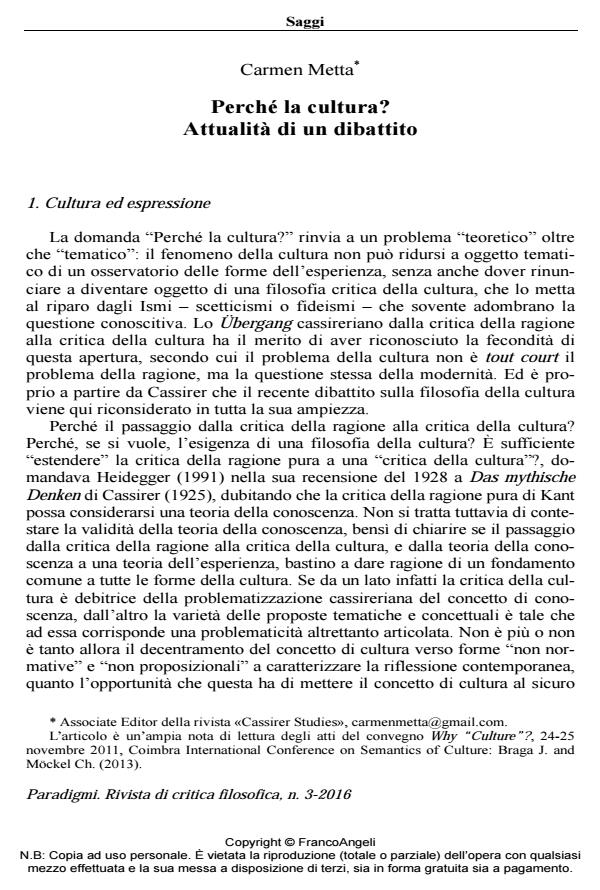Perché la cultura? Attualità di un dibattito
Journal title PARADIGMI
Author/s Carmen Metta
Publishing Year 2017 Issue 2016/3
Language English Pages 17 P. 135-151 File size 203 KB
DOI 10.3280/PARA2016-003009
DOI is like a bar code for intellectual property: to have more infomation
click here
Below, you can see the article first page
If you want to buy this article in PDF format, you can do it, following the instructions to buy download credits

FrancoAngeli is member of Publishers International Linking Association, Inc (PILA), a not-for-profit association which run the CrossRef service enabling links to and from online scholarly content.
The question "Why culture" calls for a rethinking of the account of culture and the method itself of the cultural analysis. The author traces back the steps of this critical path, suggesting an interpretative reading of the contributions to the conference Why "culture"?, held in Coimbra in 2011. In particular, the individuation of the three topical cores: Culture and expression, Incommensurability and interculturality, and Culture and philosophy, conveys the crucial contents of the debate across an ideal reconstruction of the Übergang from the critique of reason to the critique of culture, Cassirer’s philosophy of culture providing the framing of the recent interest in the expressive fundament of all forms of knowledge.
Keywords: Cassirer, Culture, Experience, Expression, Interculturality, Modernity.
Carmen Metta, Perché la cultura? Attualità di un dibattito in "PARADIGMI" 3/2016, pp 135-151, DOI: 10.3280/PARA2016-003009